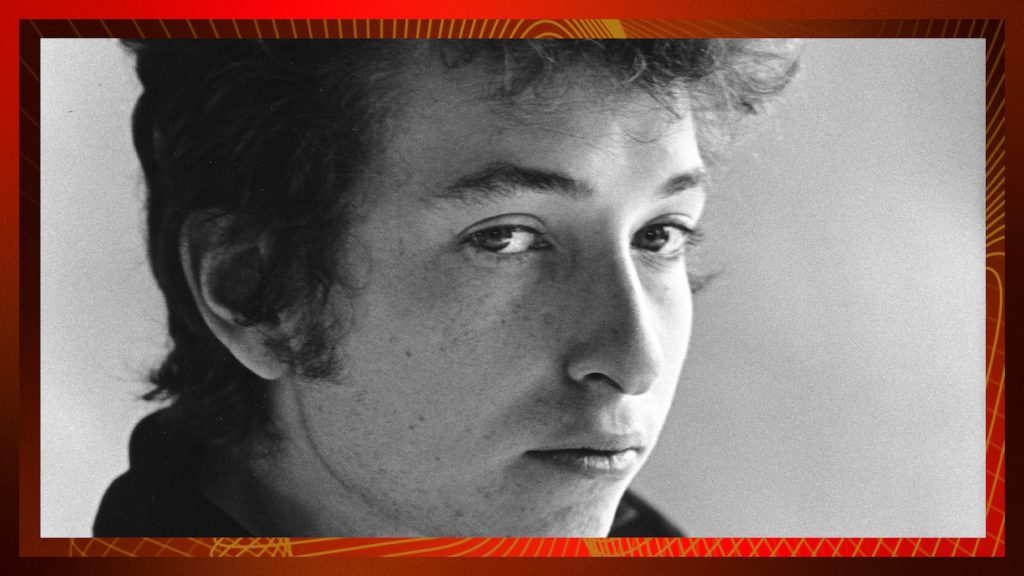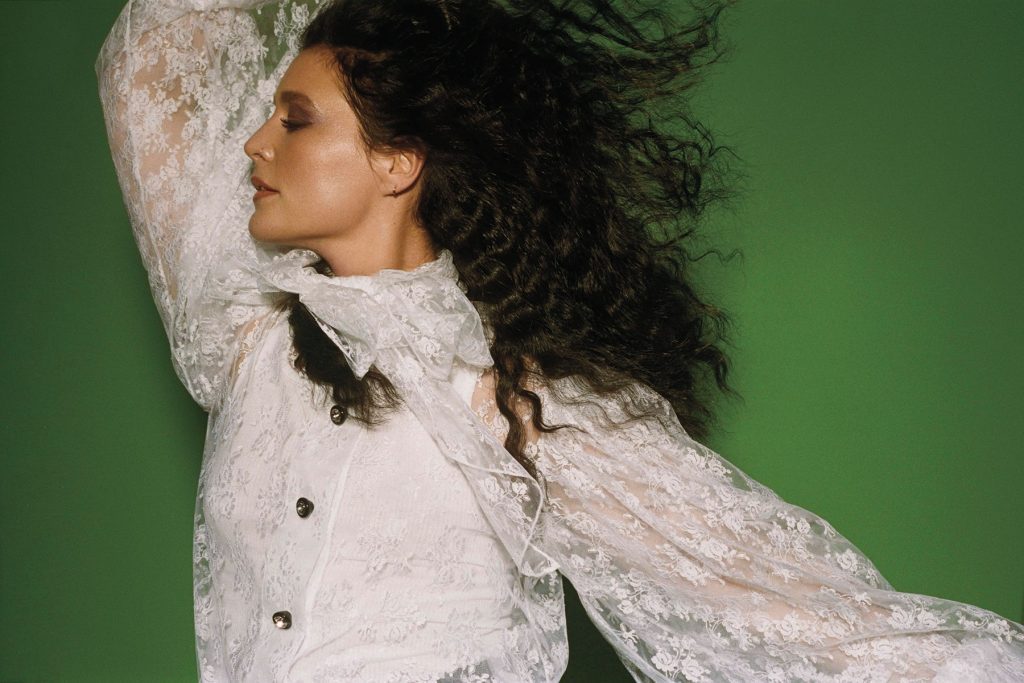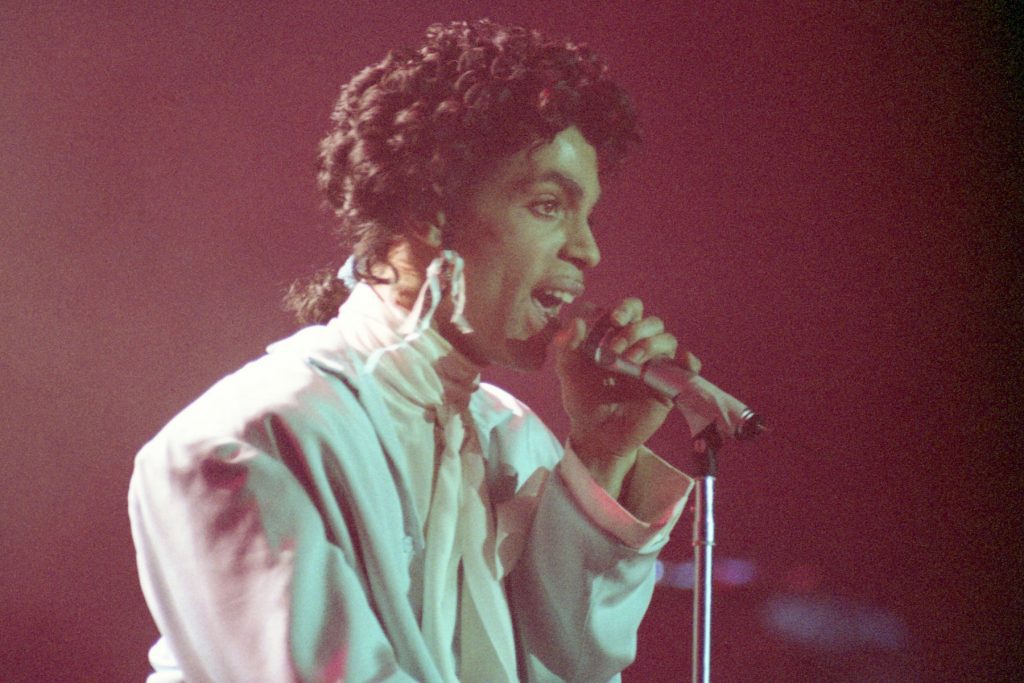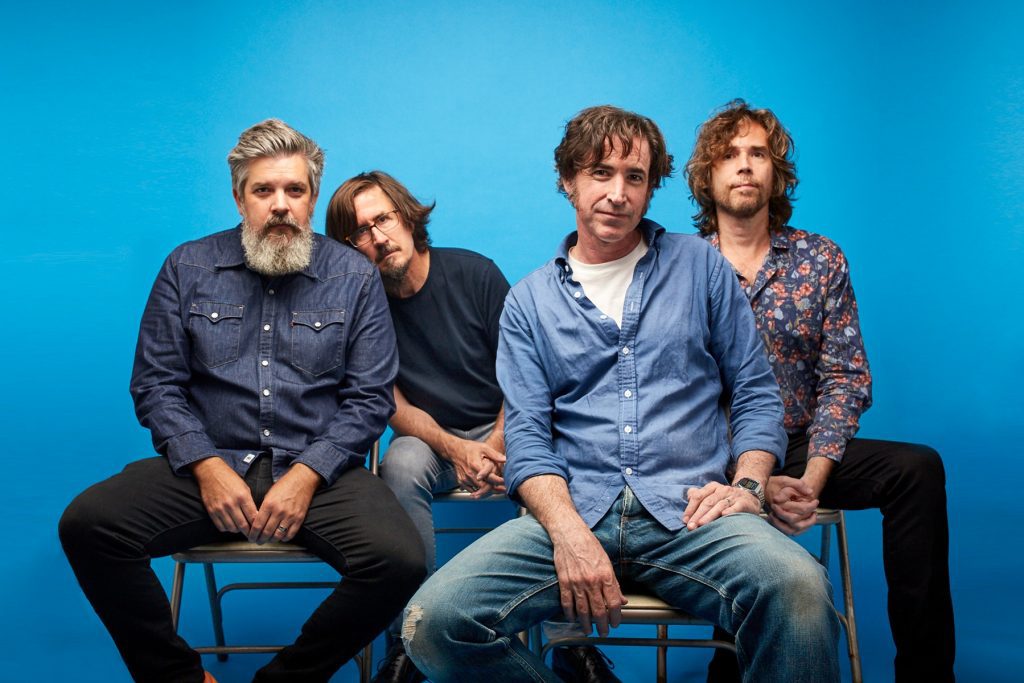
Music at Home: Dylan Uncovered
Bob Dylan’s music has always attracted an unusually high number of cover artists, both because he’s such a brilliantly original songwriter and because something about the way he performs his songs makes other people think they can do better. This has happened since the beginning of his career, when Peter, Paul, and Mary hit pay dirt by making “Blowin’ in the Wind” sound a little sweeter, and it’s still going on today: The first song on this playlist comes from a new Dylan covers album whose other selections include a version of “I Contain Multitudes,” from this year’s Rough and Rowdy Ways.
This playlist collects 15 of the best Dylan covers through the years, with an emphasis on versions that bring out less-obvious aspects and emotions in his songwriting. The best-known, most-played Dylan covers aren’t here; that means no Jimi Hendrix, no Byrds, and no Guns N’ Roses, although if you somehow haven’t heard those iconic hits you should check them out. There are thousands of other Dylan covers that could have made it onto this playlist, and it’s in no way a comprehensive accounting — just one of many ways of viewing his catalog from another angle.
blogherads.adq.push(function () {
blogherads
.defineSlot( ‘medrec’, ‘gpt-dsk-tab-article-inbody1-uid0’ )
.setTargeting( ‘pos’, [“mid-article”,”mid”,”in-article1″,”mid-article1″] )
.setSubAdUnitPath(“music//article//inbody1”)
.addSize([[300,250],[620,350],[2,2],[3,3],[2,4],[4,2]])
;
});
Find this playlist on Spotify here.
Emma Swift, “One of Us Must Know (Sooner or Later)”
Swift’s Blonde on the Tracks, released this August, provides the most recent entry on this playlist. The Nashville singer-songwriter finds the sometimes-hidden heart in each of the Dylan songs she chooses, softening the sarcasm of “I Contain Multitudes” and somehow making “Simple Twist of Fate” even more of a weeper. This version of “One of Us Must Know (Sooner or Later)” is one of her best, with her slow-burn vocals bringing out all the yearning that Dylan was too cool to let show in 1966. (Note: Blonde on the Tracks isn’t available on the major streaming services, but it’s well worth your Bandcamp dollars.)
Odetta, “Long Ago, Far Away”
Odetta was a pivotal influence on Dylan’s early career. In his memoir, Chronicles: Volume One, he recalls discovering one of her albums at a Minneapolis record store as a college student: “I learned almost every song off the record right then and there, even borrowing the hammering-on [guitar] style.” A few years later, the great folk musician and civil rights activist tipped her hat to him with 1965’s Odetta Sings Dylan. Her versions are all authoritative, but this one, based on a protest song from Dylan’s 1962 Witmark demos, is the searing highlight. Odetta sings about centuries of hatred, oppression, violence, and inequality, ending each verse with a bitingly ironic “Long ago, far away/Things like that don’t happen nowadays.”
The Brothers and Sisters, “The Mighty Quinn”
L.A. producer Lou Adler was on a hot streak in the late Sixties, right in between his successes with the Mamas and the Papas and helping Carole King make Tapestry. He used his industry connections to convene a who’s who of session vocalists for 1969’s Dylan’s Gospel, a set of covers that will have you rolling down the church aisles to praise Bob. Merry Clayton, who earned her place in the history books the same year with her unforgettable howl on “Gimme Shelter,” leads the choir on this swinging, soulful take on “The Mighty Quinn.” Dylan’s original is a stoner-messiah joke; Clayton makes you want to jump for joy.
Joan Baez, “You Ain’t Goin’ Nowhere”
The Byrds got there first with their country-rock version on Sweetheart of the Rodeo, but Baez outdid them later in 1968, when she sang this Basement Tapes highlight for her superb Dylan covers album, Any Day Now. For my money, it’s the best of all the Dylan tribute albums — in part because it’s also possible to read it as a double-LP-sized subtweet of her famous ex’s shortcomings, which she corrects for with her generous readings of his words. She turns “You Ain’t Goin’ Nowhere” into a sunny celebration of domestic bliss, complete with Nashville strings and a heartfelt “ooh-wee, ride me high.” Hers is the version of this song that sounds best in a year when most of us ain’t goin’ nowhere at all.
blogherads.adq.push(function () {
blogherads
.defineSlot( ‘medrec’, ‘gpt-dsk-tab-article-inbody2-uid1’ )
.setTargeting( ‘pos’, [“mid-article2″,”mid”,”in-article2″,”mid-article”] )
.setSubAdUnitPath(“music//article//inbody2”)
.addSize([[300,250],[300,251],[620,350],[2,4],[4,2]])
;
});
Judy Collins, “Daddy You’ve Been on My Mind”
Collins made her name as an exquisite interpreter of serious male folkies like Phil Ochs, Leonard Cohen, and Dylan. This gender-flipped version of “Mama, You Been on My Mind” — a breakup song that he wrote and discarded circa Another Side of Bob Dylan — is definitive, with Collins’ clear, high voice conveying the tenderness he wasn’t ready to share with the world.
Rick Nelson, “She Belongs to Me”
After finding early fame as a child TV star and a teen-pop idol in the pre-Beatles era, Ricky Nelson dropped the “y” and pulled off a credible pivot toward laid-back, country-tinged folk-rock. His version of “She Belongs to Me,” with its warm lead vocal, pillow-soft harmonies, and sweet pedal steel, was a hit in 1970 — and it prefigured the sound that Nelson’s guitarist at the time, Randy Meisner, would take even further when he co-founded the Eagles the following year.
Fairport Convention, “Si Tu Dois Partir”
The British folk rock band’s great 1969 album Unhalfbricking has three Dylan covers on it, including an eerily lovely choral version of his tragedy ballad “Percy’s Song.” This one is a stealth Dylan song: Fairport Convention’s members rewrote the lyrics of his mid-Sixties rocker “If You Gotta Go, Go Now” in French, and arranged it as a light-hearted continental party with accordion, fiddle, and hand claps backing Sandy Denny’s spirited lead vocal.
Richie Havens, “Just Like a Woman”
Havens made a memorable debut with 1966’s Mixed Bag, where his passionate acoustic strumming and deep voice carry an eclectic group of covers and originals (including the anti-war anthem “Handsome Johnny,” which he co-wrote with Watchmen actor Lou Gossett Jr.). Toward the end of the album, Havens gives us this light, jazzy cover of a gem from Dylan’s then-new Blonde on Blonde. Dylan had moved far away from the downtown clubs where he started by this point, but Havens pulls “Just Like a Woman” back in that direction to charming effect.
Joan Baez, “Love Is Just a Four-Letter Word”
Yes, this is a second appearance on the playlist from the same Joan Baez album. If anyone has earned it, she has. Dylan never released his own version of this song, but it has some of his most evocative and self-aware lyrics, wrestling with what it really means to be free from attachment, and whether it’s a good thing after all. Baez conveys every shade of regret in his words and the spaces between them. When she sings, “Strange it is to be beside you/Many years, the tables turned/You’d probably not believe me, if I told you all I’ve learned,” with supreme serenity, it’s a chill-down-the-spine moment.
blogherads.adq.push(function () {
blogherads
.defineSlot( ‘medrec’, ‘gpt-dsk-tab-inbodyX-uid2’ )
.setTargeting( ‘pos’, [“mid”,”mid-articleX”,”in-articleX”,”mid-article”] )
.setSubAdUnitPath(“music//article//inbodyX”)
.addSize([[300,250],[300,251],[3,3],[620,350]])
.setLazyLoadMultiplier(2)
;
});
Al Kooper and Stephen Stills, “It Takes a Lot to Laugh, It Takes a Train to Cry”
Sometimes a great cover means tossing aside the meaning and implications of the original song entirely. Such is the case with this absurd yet delightful highlight from Super Session, the record that Al Kooper made in 1968 with friends including fellow former Dylan sidemen Mike Bloomfield and Harvey Brooks. This song comes from Side B of the LP, where Stephen Stills showed up to play lead guitar after Bloomfield was a no-show. They turn one of Dylan’s greatest blues laments into a wild-eyed rock & roll party. Stills rips a jamming solo, Kooper starts hooting “na-na-na-na, yeah!” for some reason, and it’s a lot of fun. These guys know how to buy a thrill.
Bettye LaVette, “It Ain’t Me Babe”
On his classic 1964 original, Dylan is saying goodbye to a woman who’s asking him to commit (or maybe to a nation of folk fans who want him to be their protest savior). It’s a young man’s song, sung by someone who’s ready for a fresh start. On this stunner from her 2018 Dylan covers album, Things Have Changed, soul great Bettye LaVette puts a lifetime of experience into the same song, shifting the perspective so it sounds more like someone who’s seen enough pain to know how much this is going to hurt.
Them, “It’s All Over Now, Baby Blue”
A young Van Morrison sings with the power of an elemental force on this 1966 cover, recorded with his old band in Belfast. Dylan’s original wrapped the ache of a breakup in beautifully crafted language; Van rips that poetic bandage right off. When he wails “The highway is for gamblers, better use your sense,” it’s like hearing him bare his beating heart. The rest of the band does well by the song, too, adding an original bassline and organ part that Beck lifted 30 years later for his Odelay single “Jack-Ass.”
The Roots, “Masters of War”
Another great Dylan cover that’s not available on streaming services; you’ll have to find a live clip from the Roots’ 2007 tour, like this one from that year’s Coachella. It starts with singer-guitarist “Captain” Kirk Douglas reciting the first verse to the melody of “The Star-Spangled Banner.” Then the band leans into a heavy, lurching groove that eventually explodes into an extended funk-jazz breakdown based on Douglas’ guitar, Questlove’s drums, and Tuba Gooding, Jr.’s horn, channeling the focused political anger of Dylan’s original in a new direction.
blogherads.adq.push(function () {
blogherads
.defineSlot( ‘medrec’, ‘gpt-dsk-tab-inbodyX-uid3’ )
.setTargeting( ‘pos’, [“mid”,”mid-articleX”,”in-articleX”,”mid-article”] )
.setSubAdUnitPath(“music//article//inbodyX”)
.addSize([[300,250],[300,251],[3,3],[620,350]])
.setLazyLoadMultiplier(2)
;
});
The White Stripes, “One More Cup of Coffee”
Little heard at the time of its release, this Desire cover from the White Stripes’ 1999 debut takes the opposite tack of most Dylan remakes: Instead of adding to the original, it subtracts, stripping away everything except Jack’s howling guitar and voice and Meg’s drums, unleashing a deranged desert-punk energy.
Sonic Youth, “I’m Not There”
For the title track to the soundtrack of Todd Haynes’ 2007 Dylan biopic — which also features excellent covers by Jim James, Stephen Malkmus, Cat Power, and many others — Sonic Youth took on one of the lesser-known songs from Dylan’s productive summer of 1967. It’s an unusually honest and direct song, essentially a shamefaced apology from a guy who knows he hasn’t been there for the woman who loves him. (In that way, it works as a sadder sequel to “It Ain’t Me Babe”: He told her he’d only let her down, and he did.) This version, with Thurston Moore’s hangdog vocal surrounded by clouds of guitar feedback, is the definitive one, and it’s a real heartbreaker.
BONUS TRACKS: Songs About Dylan
Dylan’s influence on modern music is so strong that you could make an entire other playlist of artists who reference him in their original songs as a way of signaling their admiration. These four range from clever name-checks by Wilco and Belle and Sebastian, to a Yo La Tengo song that riffs on one of his titles, to the Nineties alt-rock hit that starts with a “Ballad of a Thin Man” reference and ends with Adam Duritz literally shouting “I wanna be Bob Dylan!” Points for honesty.
Yo La Tengo, “From a Motel 6”
Belle and Sebastian, “Like Dylan in the Movies”
Wilco, “Bob Dylan’s 49th Beard”
Counting Crows, “Mr. Jones”




